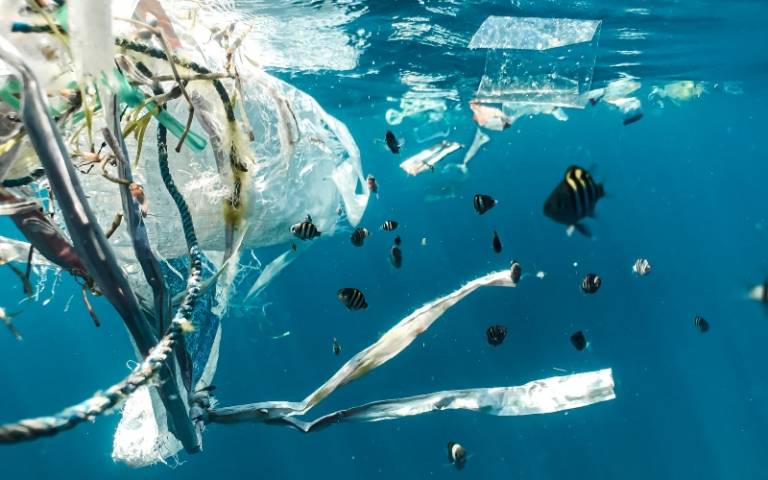Professor Jacqueline McGlade leads UN assessment of marine litter and plastic pollution
22 October 2021
'From Pollution to Solution: a global assessment of marine litter and plastic pollution' shows that a drastic reduction in unnecessary, avoidable and problematic plastic is crucial to addressing the global pollution crisis

Professor Jacqueline McGlade is lead author on a new assessment from the United Nations Environment Programme (UNEP) on marine litter and plastic pollution.
The report highlights the need for a drastic reduction in plastic in order to address the global pollution crisis. It proposes an accelerated transition from fossil fuels to renewable energies, the removal of subsidies and a shift towards circular approaches as ways to reduce plastic waste at the scale needed. It shows that while we have the knowledge, we need the political will and urgent action by government to tackle the crisis.
This assessment provides the strongest scientific argument to date for the urgency to act, and for collective action to protect and restore our oceans from source to sea.
Inger Andersen, Executive Director of UNEP
Released ahead of COP26, the report provides stark warnings about the scale of the problem. It states that plastic accounts for 85% of marine litter and warns that by 2040, the amount of plastic pollution flowing into marine areas will nearly triple, adding 23-37 million metric tons of plastic waste into the ocean per year. This poses risks to marine life of toxification, behavioral disorder, starvation and suffocation. Humans are also vulnerable to plastic pollution in water sources, which could cause hormonal changes, developmental disorders, reproductive abnormalities and cancer.
The report calls for an immediate reduction of plastics, for further investments in more robust and effective monitoring systems to identify the sources, scale and fate of plastic, and for the development of a risk framework. It says a shift to circular approaches is necessary, including sustainable consumption and production practices, accelerated development and adoption of alternatives by businesses and increased consumer awareness to enable more responsible choices.
Jacqueline McGlade is Professor of Natural Prosperity, Sustainable Development and Knowledge Systems at the Institute for Global Prosperity (IGP)
Read the full report on the UN Environment Programme website and explore the interactive website.
 Close
Close

